Editor: 邵丹蕾 Author: Zhang Fengqi, Wei Xiaochun Time: 2018-08-28 Number of visits :189
Structural deformation analysis is a vital component for the study of oil & gas bearing basin tectonics. Correctly understanding the relationship between the development history of tectonic trap and the oil & gas migration and accumulation is critical for oil & gas exploration.
August 8 to August 20, The Research Center for Structures in Oil & Gas Bearing Basins (Ministry of Education) housed in School of Earth Sciences of Zhejiang University together with the Department of Earth Science & Engineering of Imperial College and Primeline Energy Holding Inc., successfully organized International Workshop "Structural deformation and oil & gas migration and accumulation" in the UK. Over 20 experts and scholars from Imperial College, London, Primeline Energy Holding Inc., Zhejiang University, Nanjing University, Peking University, Chengdu University of Technology, Southwest Petroleum University, Research Institute of Petroleum Exploration & Development, and PetroChina Southwest Oil & Gasfield Company participated in the workshop.
Before the fied inspection, seminars on the research progress of oil and gas geology in the oil & gas bearing basins in SW England were held in Imperial College, London from August 9 to August 11. Professor Howard Johnson and Professor John Cosgrove from Imperial College introduced sedimentary characteristic, tectonic deformation, tectonic evolution history, and Oil & gas migration, accumulation and exploration in the SW England, and then participants held preliminary discussions on related issues in the region. This discussion laid a foundation for further in-depth field inspection.
After that, field inspection of the geological outcrops of the Mesozoic Bristol Basin, the Late Carboniferous Culm Basin, and the Mesozoic Wessex Basin was conducted in the SW England from August 11 to August 19. Spectacular sedimentary and tectonic structures were observed during the field, including stratigraphic unconformity, angular fold, box fold, large-scale normal fault, multi-stage inter-cutting structures. Facies of alluvial fan, river, delta, submarine fan, lake, shallow sea, desert, carbonate platform were identified. Sedimentary structures such as cross-bedding, Boma sequence, slump structure were clearly typical. The multi-stage tectonic-sedimentary response process since the Paleozoic is well indicative of the tectonic processes of continental collision beteween the Laura and Gondwana during the Late Paleozoic, continental breakup of the Pangea during the Mesozoic and extension of the Atlantic, as well as cycle from extension to structural compression. Meanwhile, typical geological evidence of oil & gas generation, reservoir and migration was also observed.
Through the workshop, participants learnt that the regional tectonic evolution and deformation process in SW England not only controlled the development and spatial distribution of oil source, reservoir and cap rocks in this area, but also significantly influenced the hydrocarbon maturation, migration and accumulation. They also realized that both the success and failure of a large number of exploration shows that structural studies are critical for hydrocarbon discovery. All participants were impressed by the classical tectonic-sedimentary geological phenomena in the field. The field inspection in the SW England is a significant reference and enlightenment for the study of deep-seated structures in the central and western China, and provided abundant teaching materials for structural geology and petroleum geology teaching in the future.
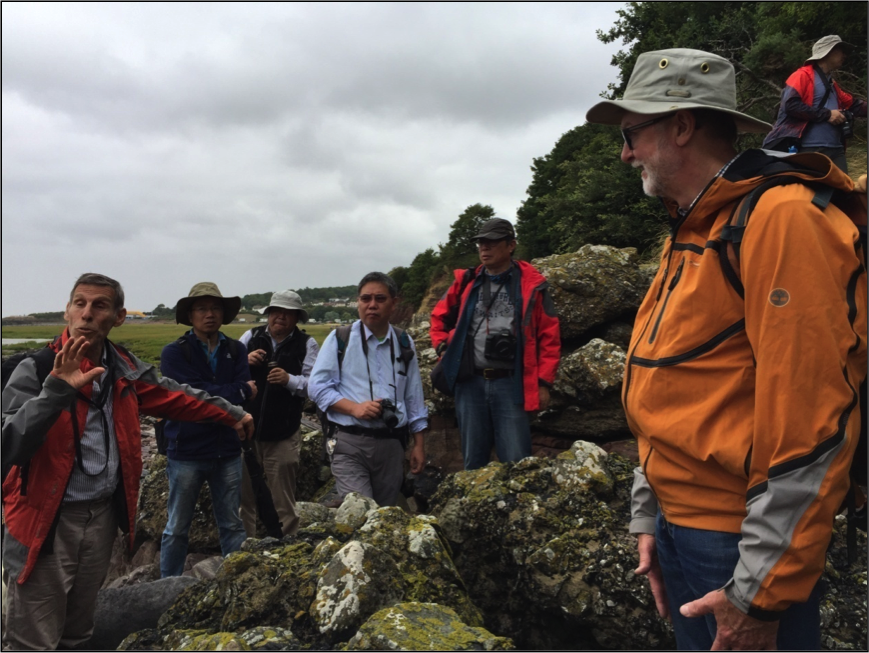
Participants inspecting unconformity between Triassic and Devonian and gravity flow deposits in Bristol Channel Basin
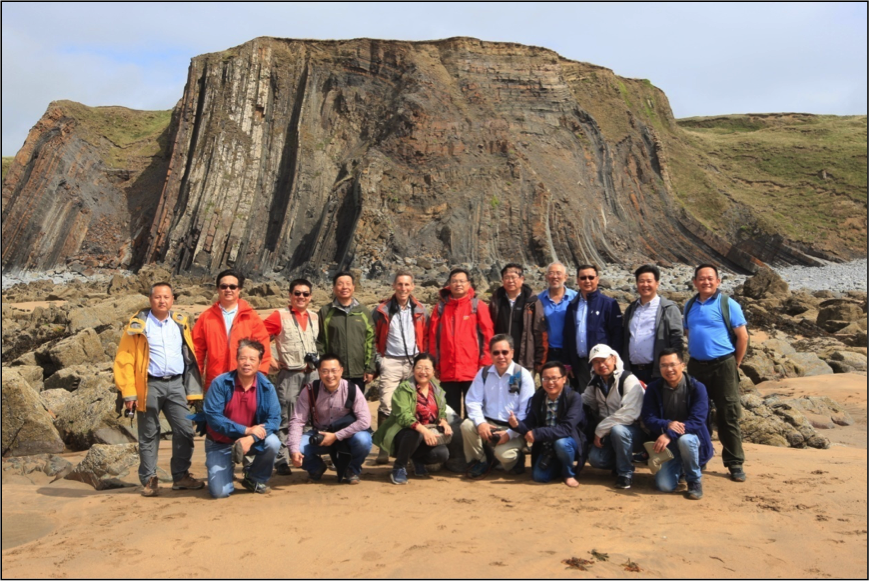
Participants inspecting large-scale box fold
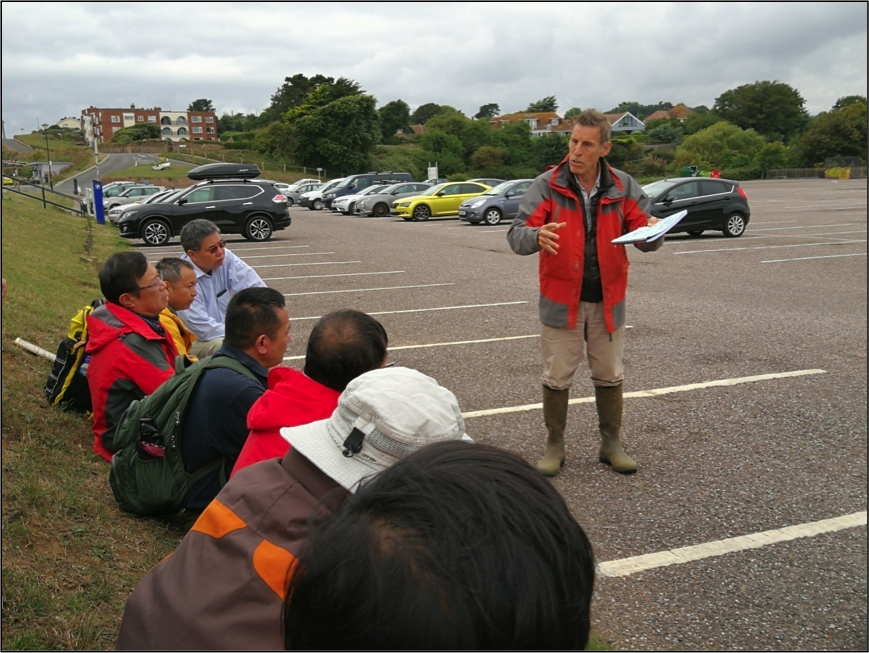
Professor Cosgrove from Imperial College introducing tectonic deformation history in the field
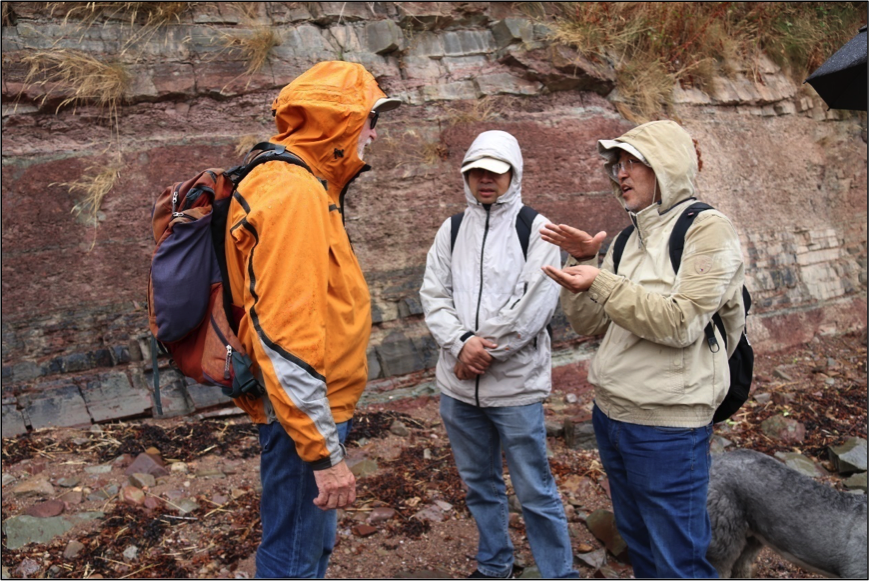
Field discussion (from left to right: Professor Howard Johnson from Imperial College, Professor Yin Hongwei From Nanjing University, Professor Wang Xin from Zhejiang University)
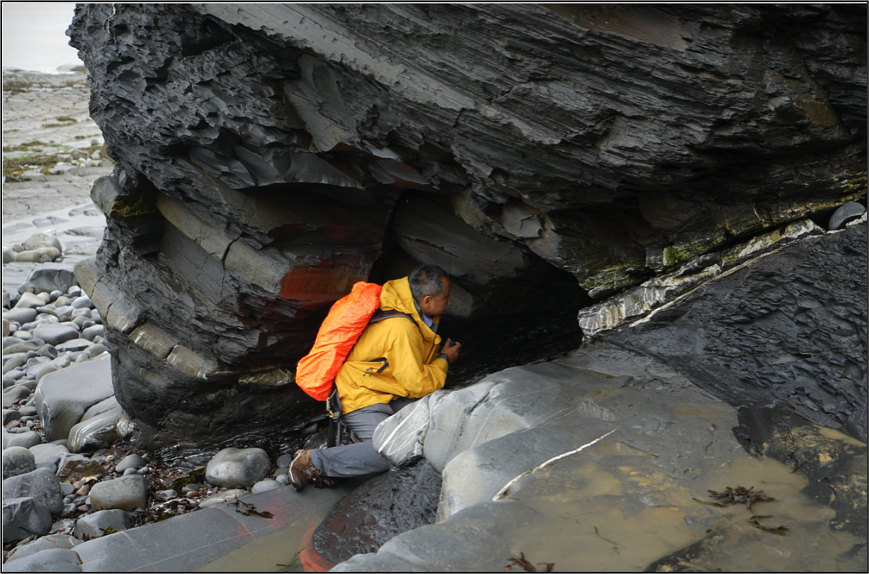
Professor Shen Xiaohua from Zhejiang University observing Mesozoic normal faults
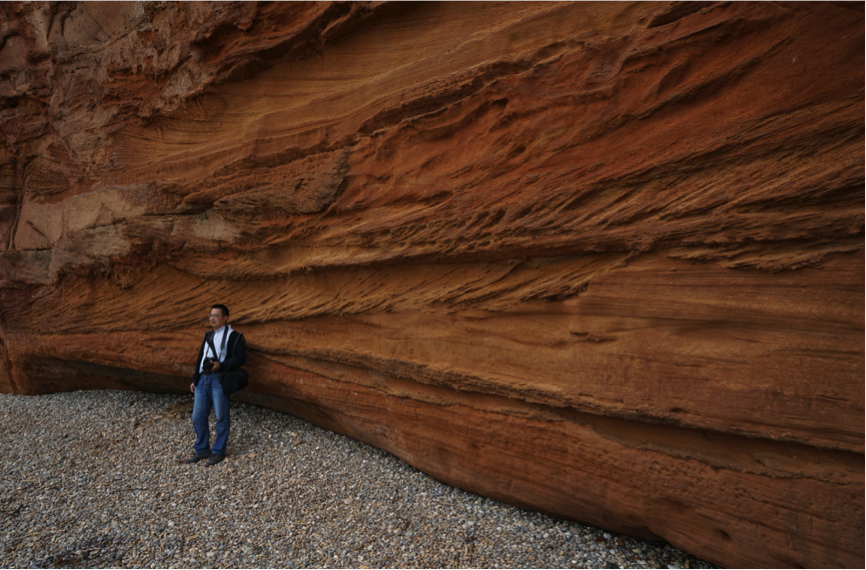
Associate professor Zhang Fengqi from Zhejiang University inspecting fluvial deposits
